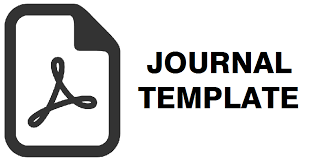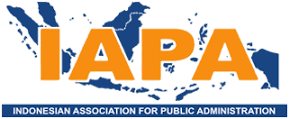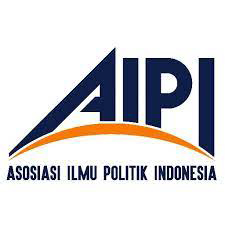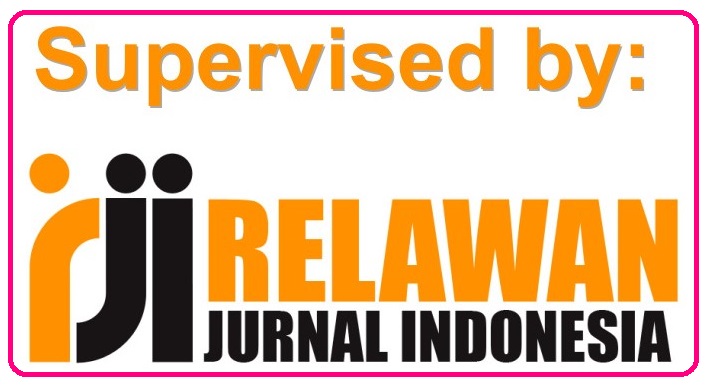Peacebuilding Strategies and Internal Democracy in Lagos State: A Study of All Progressives Congress (APC), Nigeria
Abstract
This research looked at the connection between the All-Progressive Congress's internal democracy in Lagos State, Nigeria, and peacebuilding techniques. To provide direction for the investigation, two hypotheses (tested at the 0.05 level of significance) were established. All political players in the state were included in the population, which was stratified into senatorial districts to provide a sample size of 289 using correlational and descriptive research techniques. Pearson's Product-Moment Correlation Analysis was used to evaluate the data. The results of the study show that there is a positive, moderate, and significant relationship between peacebuilding strategies and power-sharing arrangements with the All-Progressives Congress in Lagos State (r =.643, ρ < 0.05). Additionally, there is a positive, weak, and significant relationship between peacebuilding strategies and inclusivity and diversity with the All-Progressives Congress in Lagos State (r =.312, ρ < 0.05). The study concludes that power-sharing in Lagos State has become increasingly important due to the diverse nature of its population, which consists of people from different ethnic, religious, and socio-economic backgrounds as well as diversity and inclusivity, as it involves recognizing and celebrating the differences that exist among individuals and communities. It is recommended in the study that the political parties in Lagos State, particularly All Progressives Congress (APC) should endeavour to observe internal democracy so as to give room for transparent party primaries, as this would reduce incidences of replacing candidates, thereby promoting an atmosphere for peaceful coexistence, equity and fairness.
Downloads
References
Carothers, T. (2006). Confronting the Weakest Link: Aiding Political Parties in New Democracies. Washington, DC: Carnegie Endowment for International Peace.
Castillejo, C. (2016). Political Parties and Peacebuilding. Norwegian Peacebuilding Resource Centre Report, January 2016.
Clean Foundation. (2014). Security Threat Assessment: Towards 2015 Elections. Retrieved Noverber 15, 2014, from www.africapractice.com.
Dike, V. (2003). “Nigeria and the Politics of Unreason: Assassinations, Decampments, and Moneybags”.
Egobueze, A. (2020). The State and the people. Port Harcourt, A & G Hildian Ltd and Pearl International Publishers Ltd.
Ezirim, Gerald (2010). Democracy as a conflict management strategy. In: Albert, I.O. and I.O. Oloyede eds. Dynamics of peace processes. Ilorin/Ibadan, Centre for Peace and Strategic\Studies/John Archers Publishers. pp. 38–48.
Ezirim, Gerald (2010). Democracy as a conflict management strategy. In: Albert, I.O. and I.O. Oloyede eds. Dynamics of peace processes. Ilorin/Ibadan, Centre for Peace and Strategic Studies/John Archers Publishers. pp. 38–48.
Ezirim, Gerald E, & Mbah, P. O. (2014). Electoral process and political violence in Africa: A preview of the 2015 elections in Nigeria. Society for Research Academy.
Ezirim, Gerald Ekenedirichukwu. (2009). Democracy as a Conflict Management Strategy in Nigeria, 1–10.
Fayemi, A. K. (2009). Towards an African theory of democracy. Thought and Practice, 1(1), 101–126.
Harris, A., & Chapman, C. (2004). Democratic leadership for school improvement in challenging contexts. Democratic Learning: The Challenge to School Effectiveness, 164–178.
Hofmeister, W and Grabow, K (2011) Political Parties: Functions and Organisation in Democratic Societies, Singapore: Konrad Adenauer.
Ibeanu, O. (2013). Regulating Nigerian Political Parties: Role of the Independent National Electoral Commission. Being a paper presented at National Conference on Political Parties and the Future of Democracy in Nigeria, organized by the National Institute for Policy and Strategic Studies (NIPSS), Kuru, in collaboration with the Democracy and Governance Development Project (DGD) II of UNDP, 26-28 June, 2013.
Jinadu, A. (2014). Political Parties and Democracy in Nigeria. In Olu Obafemi, Sam Egwu.
Kaur, S. (2007). Institutional development as a challenge to democratic sustenance in Nigeria. International Studies, 44(3), 217–233.
Liebowitz, J. & Ibrahim, J. (2013). A Capacity Assessment of Nigerian Political Parties. NNDP Nigeria.
Lijphart, A. (2002). The Wave of Power-sharing Democracy. In A Reynolds (ed). The Architecture of Democracy: Constitutional Design, Conflict Management and Democracy. Oxford: Oxford University Press.
Matlosa, (2007). Electoral System, Constitutionalism and Conflict Management in Southern Africa. African Journal on Conflict Resolution, 4(2), 11-53.
Mersel, Y (2006) The Dissolution of Political Parties: The problem of internal democracy. Oxford Journals .org, 1. CON Volume 1. 84-113.
Mersel, Y. (2006). The dissolution of political parties: The problem of internal democracy. Oxford Journals .org, 1, 84-113.
Mimpen, J. (2007). Intra-party democracy and its discontents: Democratisation in a volatile political landscape. Retrieved from http://plein66.nl/documents/64/intra
Momodu, J & G, Matudi 2013. The implications of intra-party conflicts on Nigeria’s democratization. Global Journal of Political Science and Human Social Science, 14 (6), pp. 1–13.
Momodu, J. & Gambo, M. (2013). The implications of intra-party conflicts on Nigeria democratization. Global Journal of Political Science and Human Social Science. 14(6), 1-13.
Momoh, A. (2013). Party System and Democracy in Nigeria being a paper presented at National Conference on Political Parties and the Future of Democracy in Nigeria, organized by the National Institute for Policy and Strategic Studies (NIPSS), Kuru, in collaboration with the Democracy and Governance Development Project (DGD) II of UNDP, 26-28 June, 2013.
Muriithi. (2007). Institute of Social ShuUes.
Murtin, F., & Wacziarg, R. (2014). The democratic transition. Journal of Economic Growth, 19(2), 141– 181.
O’Leary, B., (2005). Debating Consociational Politics: Normative and Explanatory Arguments. In Noel, S., ed., 2005. From Power Sharing to Democracy. Montreal: McGill/Queen’s University Press. 3-43.
Odigwe, O. K. (2015). Nigeria political parties and internal democracy. African Journal of Governance and Development, 4(2); 15.
Ofuoku, A., & Evwierhurhoma, F. (2018). Effect of land conflict on arable crops production in Delta State, Nigeria. Ege Üniversitesi Ziraat Fakültesi Dergisi, 55(3), 357–366.
Ojukwu, Chris & Olaifa (2011). Challenges of internal democracy in Nigeria’s political parties: The bane of intra-party conflicts in the People’s Democratic Party of Nigeria. Global Journal of Human Social Science, 2 (3), 24–34.
Okhaide, I.P (2012) Quest for Internal Party Democracy in Nigeria: Amendment of Electoral Act 2010 as an Albatross. International Journal of Peace and Development Studies, 3(3); 57-75.
Omotola, J. S (2009). Nigerian Parties and Political Ideology. Journal of Alternative Perspectives in the Social Sciences, 1(3), 612-634.
Onigu-Otite, K., & Albert, I. O. (1999). Community conflicts in Nigeria: Management, resolution and transformation. Spectrum Books Limited.
Pogoson, A. I. (2014). Women, Political Parties and Exclusion in Nigeria: 1999-2012. In Olu Obafemi, Sam Egwu, Okechukwu Ibeanu & Jibrin Ibrahim (Eds), Political Parties and Democracy in Nigeria (pp. 237- 264). National Institute for Policy and Strategic Studies (NIPSS), Kuru, Nigeria.
Salih, M.A.M (2006) Globalizing Party Politics in Africa: The Influence of Partybased Democracy Networks’, in Peter Burnell (ed.), Globalising Democracy: Party Politics and Political Parties, London: Routledge, 142–62.
Scarrow, S (2005) Political Parties and Democracy in Theoretical and Practical Perspectives: Implementing Intra-party Democracy. Washington DC: National Democratic Institute.
Sodipo, M. O. (2013). Mitigating radicalism in northern Nigeria. National Defense Univ Fort Mcnair DC Africa Center for Strategic Studies.
Sodipo, M. O. (2013). Mitigating radicalism in northern Nigeria. National Defense Univ Fort Mcnair DC Africa Center for Strategic Studies.
UNDESA, (2007). Final Report on the Expert Group Meeting on “Creating an Inclusive Society: Practical Strategies to Promote Social Integration. Unpublished
United Nations & World Bank, (2018). Pathways for Peace: Inclusive Approaches to Preventing Violent Conflict. Washington, DC: World Bank, pp. 144-146. Available at: https://openknowledge.worldbank. org/handle/10986/28337.
White, J. K. & Shea, D.M. (2000). New Party Politics: From Jefferson and Hamilton to the Information Age. New York: Bedford/St. Martin’s 14.
Wild, L. & M. Foresti. (2010). Support to political parties: a missing piece of the governance puzzle. ODI Briefing Paper. London: Overseas Development Institute.
Yahaya, M. A. (2018). The Challenging Nature and Pattern of Intra-party conflicts in Nigeria Fourth Republic: Critical Assessment of All Progressives Congress. Retrieved from Ejournal.ukm.my/gmiss














